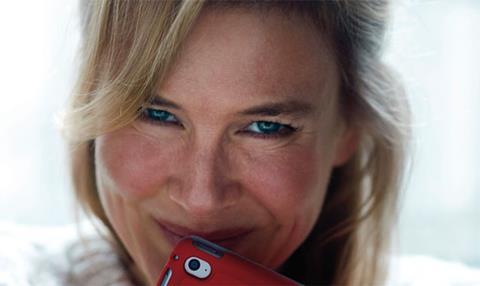The new Star Wars, the new JK Rowling and the new Bridget Jones film are all shooting in England.

These are the best of times for the UK. Its studios have never been busier and its locations are increasingly sought after. The total spend on film was $2.25bn (£1.471bn) in 2014, a 35% increase on 2013 and, according to the British Film Institute, the highest figure ever recorded.
International film-makers are drawn to the UK Film Tax credit, now available to high-end television drama and animation as well as film, the excellence of the crews and by an ever-expanding post-production and VFX sector, clustered heavily in London. The government has thrown its support behind the sector and there has been continuing private investment in infrastructure. The main studios, including Leavesden and Pinewood, are continuing to increase in size while warehouses, converted factories and old RAF bases are also being used for filming. The skills base is growing and the UK has a reputation for world-class acting, directing and writing talent. National and regional film agencies do their best to facilitate film-making, whether big US studio movies or lower-budget indie projects, both local and international.
Big recent films to have shot in the UK include Sony’s Spectre, Paramount’s Mission: Impossible — Rogue Nation and Disney’s Star Wars: Episode VII — The Force Awakens. Upcoming films include Marvel adaptation Doctor Strange starring Benedict Cumberbatch, Working Title Films’ Bridget Jones’s Baby, Amma Asante’s A United Kingdom and Warner Bros’ JK Rowling adaptation Fantastic Beasts And Where To Find Them. High-end TV series drawn specifically to London include Fox’s 24: Live Another Day, Stephen Daldry’s The Crown for Netflix and Stan Lee’s TV drama Lucky Man.
GOOD TO KNOW
London can double for nearly everywhere. Stephen Frears shot New York-set film Florence Foster Jenkins and many of the French scenes from his Lance Armstrong movie, The Program, in the city. TV drama Fortitude, set in the Arctic, was shot in a converted warehouse in West London
The Lowdown
Financial incentives
Since April 2015, the minimum level of UK expenditure required to access the Film Tax Relief for a UK-qualifying film is now 10% of a film’s overall budget. The tax relief is worth 25% of the qualifying UK production expenditure, no matter what is the budget. There is tax relief for video games, animation and television as well as for films. Recent enhancements to the Film Tax Credit received European State Aid approval in the late summer of 2015. Further information www. britishfilmcommission.org.uk/film-production
Infrastructure
The UK has top technicians — and a growing number of them. Crews and sound stages can now host simultaneously six or seven huge productions. Even if you’re not shooting in the UK, you can still use London’s much-vaunted VFX and post-production sector, and access tax benefits in the process.
Locations
England boasts a huge variety, from the romantic landscapes of the Lake District and the Yorkshire moors to the hi-tech world of skyscrapers and city offices in parts of London. Medieval, Georgian, Edwardian and Victorian settings can all be found. Where to stay
The Firmdale hotel group in central London is ever popular, while The Grove is the hotel of choice for production execs and A-listers working at Leavesden.
Size matters
London remains the centre for filmmaking but it is not the quickest city to get round. Cast and crew staying in the centre can face slow journeys — or early starts and late returns — to the studios on the outskirts of the city. Other English film-making and TV production hubs such as Manchester are easily accessible by train.
Rick McCallum, producer, A United Kingdom
“I like shooting in the UK. Even more importantly, I like using heads of departments from the UK wherever I shoot around the world. There is such a disproportionate amount of incredible talent in the UK — the best cameramen, costume designers, production designers and editors. The sound and visual-effects companies have reached a whole new level in the last 10 years.”
Would they return?
“Always. The locations are sublime.”
What could be improved?
Some producers complain the volume of US studio shoots has pushed up the cost of locations and shooting in London so much that some low-budget indies instead consider eastern Europe.
First person to call
Samantha Perahia, senior production executive, British Film Commission enquiries@britishfilmcommission.org.uk
























No comments yet